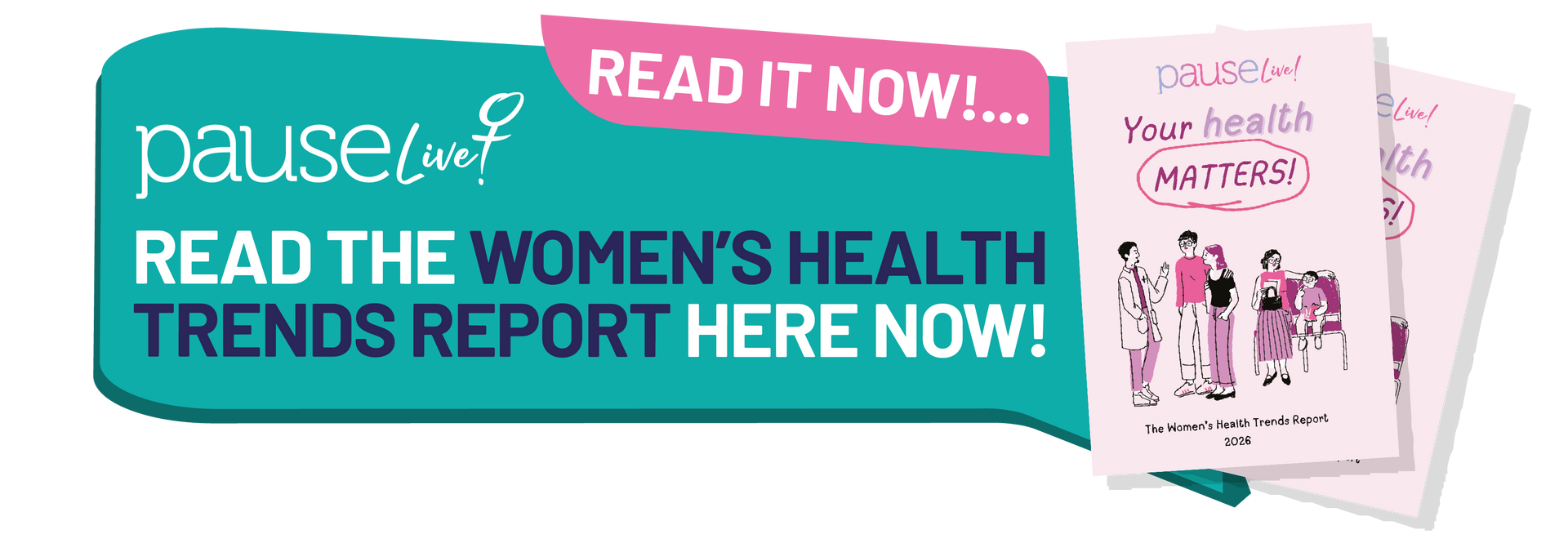Understanding menopause
What is menopause?
The menopause is something that all women will experience. It occurs when women’s periods stop due to lower hormone levels; the ovaries will stop producing as much of the oestrogen hormone and no longer release an egg each month.
This usually happens between the ages of 45 and 55; with the average age being 51. Around 1 in 100 women can experience menopause before the age of 40 – either naturally for often unknown reasons, because of medical reasons such as removal of the ovaries or uterus, or as a result of cancer treatments like chemotherapy.
Menopause is deemed to have occurred after 12 consecutive months without a period. It marks the end of a woman’s reproductive years – she can no longer become pregnant; except in rare cases where specialist fertility treatment is given.
What is perimenopause?
Perimenopause means ‘around menopause’ and is when women experience symptoms before their periods actually stop. Hormone levels begin to change, leading to typical menopausal symptoms outlined below.
It usually starts in women’s 40s and lasts approximately four years. In some cases, however, it can start earlier and last up to 10 years.
How do you know if you’re going through menopause?
Changes in your mood, having difficulty sleeping, feeling more anxious, irregular periods and discomfort during sex are all signs that you’re in perimenopause (approaching menopause). A blood test can determine if you are menopausal, which can be provided by your GP or a private menopause specialist.
How does menopause affect women?
There are many symptoms associated with the menopause that can have both a physical and mental impact on women.
These include:
- Brain fog
- Anxiety
- Mood swings
- Hot flushes
- Irregular periods
- Difficulty sleeping
- Headaches and migraines that are worse than usual
- Weight gain
- Dry skin
- Reduced sex drive
- Muscle ache and joint pains
- Vaginal dryness and pain
- Discomfort during sex
- Urinary tract infections (UTIs)
The intensity and duration of symptoms can vary from woman to woman – not everyone experiences the same concerns.
How long does menopause last?
Menopause symptoms last, on average, seven years, with one in three women experiencing concerns for longer. Symptoms can also change with time.
How does menopause impact women’s health long-term?
After menopause, some women can be at increased risk of heart disease of osteoporosis. It’s therefore really important to lead a healthy lifestyle with plenty of nutritious food and regular exercise.
How can women cope with menopause?
It’s important to know that there are things women can do, or their family and friends can recommend, to help them through this challenging time.
The NHS advises:
- Get plenty of rest and stick to regular sleep routines
- Eat a healthy diet
- Have calcium-rich food like milk, yoghurt and kale to keep bones healthy
- Take vitamin D supplements
- Avoid spicy food and caffeine
- Wear light clothing and keep your bedroom cool at night to avoid hot flushes
- Talk to other people going through the same thing
- Stop smoking
- Cut down on alcohol
Alternative therapies can also help:
- Try relaxing exercise such as yoga or tai chai
- Make time to meditate
- Book a course of acupuncture
Are there treatments for menopause?
Hormone replacement therapy (HRT) is the main treatment method for managing menopausal symptoms. This can be prescribed by your GP after a consultation.
HRT replaces your body’s levels of oestrogen and/or progesterone to ease symptoms. It can also help reduce the risk of osteoporosis and heart disease.
Oestrogen can come as:
- Tablets
- Implants
- Skin patches
- Gel or spray
Progesterone is taken to protect the womb lining from the effects of oestrogen. It can come as:
- Patches (combined with oestrogen)
- Coil
- Tablets
Women can also take testosterone to improve their sex drive.
Blood pressure medicine can help with hot flushes and night sweats, while antidepressants or cognitive behavioural therapy can be prescribed for depression or anxiety.
Bioidentical hormone replacement therapy (BHRT) is another form of treatment that could help; only available privately.
This involves the use of duplicates of human hormones, products by specialist pharmacies. They will test hormone levels in advance and create personalised prescriptions for patients.
Many women report the benefits of BHRT, but it’s important to note that it is not endorsed by the NHS or the British Menopause Society for various reasons. It’s important to do your research and only see medically-qualified professionals for advice before embarking on treatment.
How do you talk to your GP about the menopause?
It’s important that women don’t suffer in silence and access help when they need it. Your GP will be able to recommend ways to cope with the menopause and prescribe hormone replacement therapy (HRT) to help manage symptoms. Get tips for communicating effectively
with your GP here.
Are there menopause support groups available?
There are lots of support groups, counselling services and online spaces where you can access help for coping with the menopause. Find a comprehensive list here.


